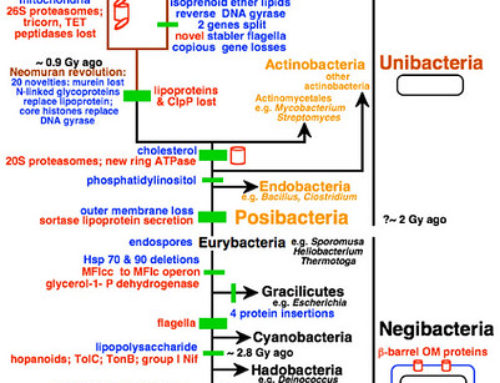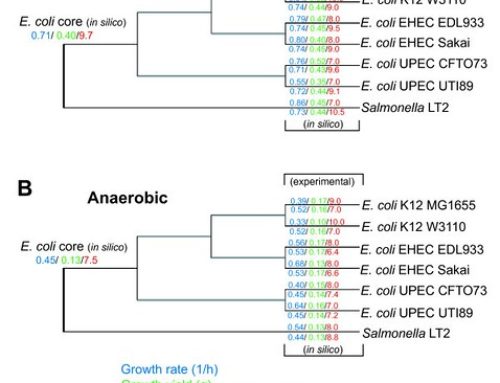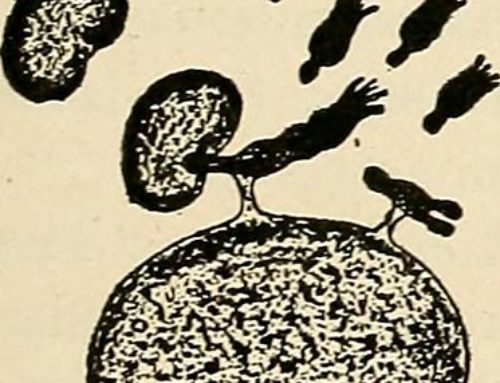Skip to content
Fermentation of Sugars in Microorganisms
Fermentation of Sugars in Microorganisms
- Fermentation refers to the breakdown of a monosaccharide to pyruvic acid and then usually to lactic acid. It is also called the glycolytic cycle and is the process by which facultative bacteria produce ATP under anaerobic conditions.
- Under aerobic conditions, pyruvic acid enters the Krebs cycle (also referred to as the oxidation cycle or tricarboxylic acid, TCA, cycle) and is metabolized to CO2 and H2O.
- The Krebs cycle generates much more ATP than the glycolytic cycle, so facultative bacteria grow faster under aerobic conditions.
- Both facultative and anaerobic bacteria ferment, but obligate aerobes do not.
- Fermentation tests in the clinical laboratory are used to identify certain bacteria. The fermentation of sugars results in production of ATP and pyruvic or lactic acids. The acids lower the pH of the medium which is detected by a change in color of indicator dyes.
Like this:
Like Loading...
Related
Share This Story, Choose Your Platform!
Page load link






Leave a Reply